A Road not Recommended for Roadtreks
July 13-14, 2008
After spending the night camped with fishermen on the shore of the
Copper River, we headed up the road to McCarthy and Kennecott. The road
mostly follows the bed for the railroad that was built to carry ore
from the Kennecott copper mines. We had talked with a ranger the day
before about whether it was reasonable to drive the road with our RV.
He said that we shouldn't have any problems. We knew the road was
gravel and expected some washboarding, but it turned out a lot rougher
than we expected. But we perservered and made it to the end.
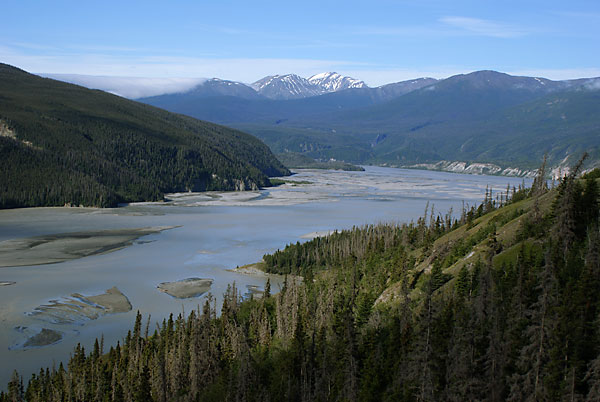
About five miles up the road we came to a overlook of the Chitina River
just upstream of where it flows into the Copper River. Rivers around
here seem to all look like this - a broad flat channel with multiple
stream channels threading their way through it. Geologists call these
"braided rivers".
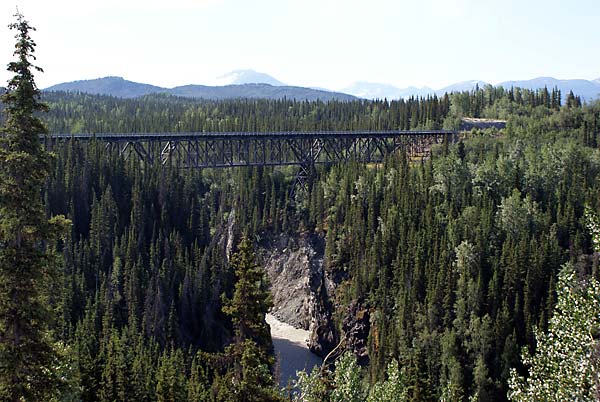
Further on we came to the bridge over the Kuskalana canyon. The bridge
was built in 1910 in the dead of winter in two months construction
time. The reason for building it in the winter was to build the
railroad as fast as possible so it could be used to carry ore from the
mines. The motto seemed to be, "There is profit to be made, so get on
with it!"
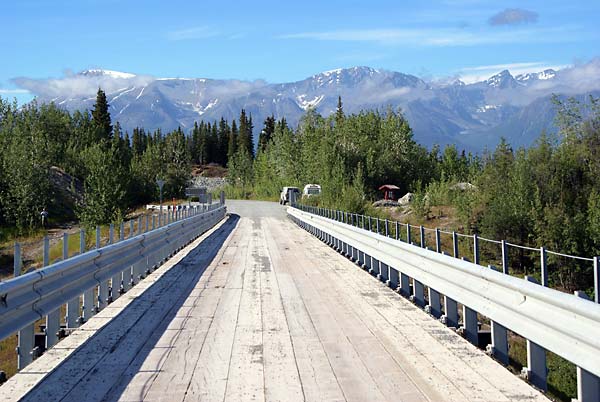
Crossing the Kuskulana Bridge. Beautiful mountains lay ahead, so maybe the drive will be worth it.
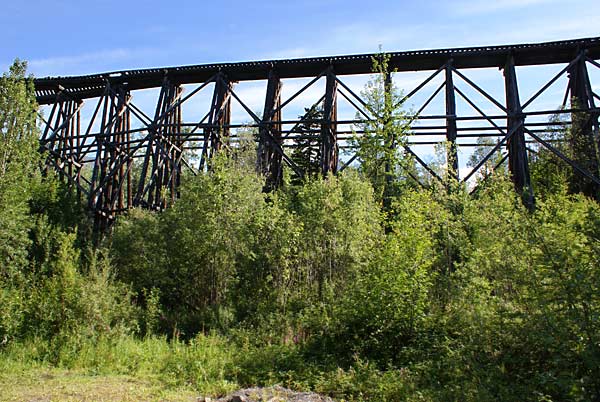
About halfway to McCarthy we came to the Gilahina trestle. The
trestle, originally 890 feet long and 90 feet high, was built in
the winter of 1911 in 8 days. Since being abandoned in 1938, it has
deteriorated badly. No, our road doesn't go over it. Instead we drove
to the bottom of the canyon and took a little bridge over the small
stream.
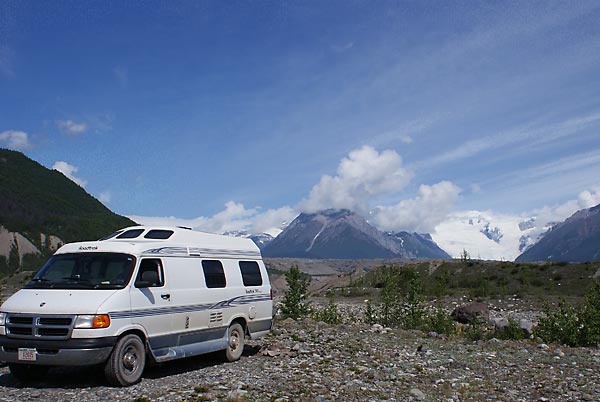
After driving 3 1/2 hours and traveling only 60 miles, we reached
McCarthy, where the road ends. We chose a campsite in view of Kennicott
glacier. Then we discovered that the washboard and pothole-filled road
had taken its toll on our Roadtrek; the support bracket for the
microwave oven had pulled loose from the wall it was supposed to be
attached to. Fortunately, the other support bracket was still holding,
so the oven had not fallen. But it looked rather precarious, so we
removed the oven. It is now on the floor between the two front seats
where it blocks our moving to, and from, the seats. That seems to be
its way of getting even with us for puttting it through such a rough
ride.
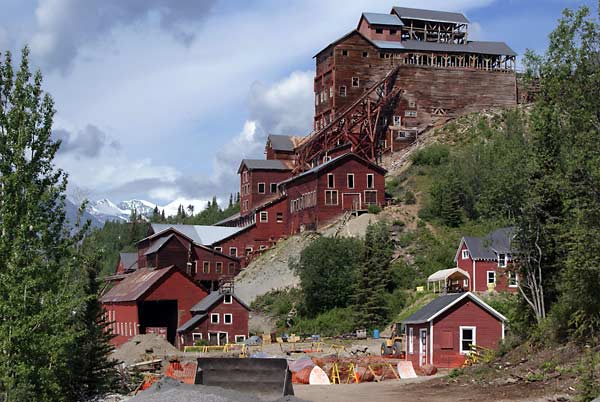
The Kennecott mill; the mines are further up the mountain. The mines
produced a very high grade copper ore from about 1911 to 1938, when
they were closed. During this time, the profit for the Kennecott
company was estimated at about $100 million, which is worth over a
billion dollars today. Since being abandoned, the building have
deteriorated badly and most are unsafe to enter. The National Park
Service bought most of the property in 1988 and has been stabilizing
and repairing some of the buildings to preserve this piece of Alaskan
history.
The next day we headed back down the road, but we decided to take it
slower and keep the Roadtrek in one piece. The trip back took about 4
1/2 hours, at an average speed of 13 mph. Boy, were we glad to
see pavement again! Was the trip worth the drive over the rough
road? No! We don't recommend it for an RV; there is too much stuff
inside that can shake loose.





